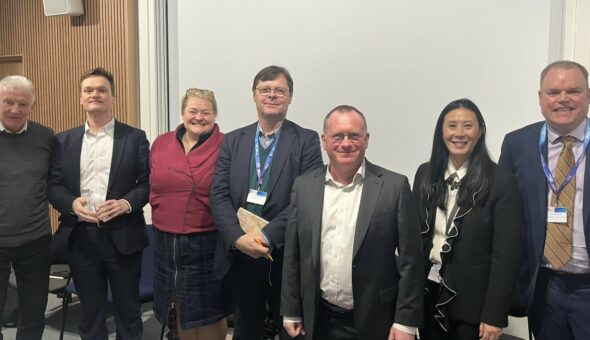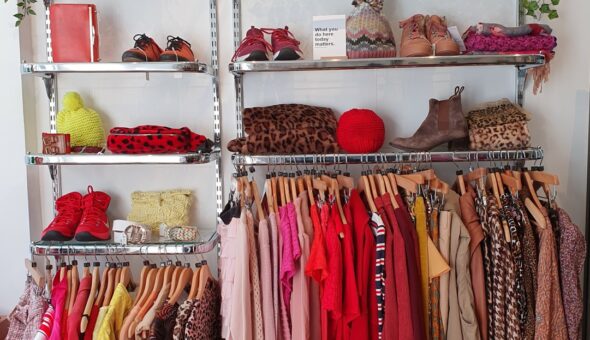November is PhD month on the Business and Society blog. We'll be featuring profiles of PhD student, as well taking as a closer look at some of their research work. Here we speak to Alisha Tuladhar, about her path to academia, her ambitions and her work on circular economy.
Tell me about your research.
I am looking at circular economy, which is quite a broad topic – it can range from the design of a product to their business model. But specifically, I am looking at circular economy business models and circular start-ups. My research is mainly exploring how circular start-ups in the UK are operating sustainably and adopting circular economy principles to address the triple bottom line – economy, social and environmental issues.
Can you explain what circular economy is?
Circular economy is basically an approach where we go away from this ‘take, make, dispose’ system that we're currently in. This means we take something from the environment, we make it into a product, and then we throw it away. So rather than continuing in this unsustainable way of living, it's basically an attempt to turn it around to close the loop. In this context, you take something, you make something, but at the end of it, you reuse, refurbish and eventually recycle. Because recycling should be the last thing to do, but often, we find that it's the first thing people do.
And I look at how start-ups have been integrating this principle. Theoretically, the concept sounds great but in practice, how does that translate? Over the course of the three years, I have developed relationships with 17 key start-ups in the UK who operationalise within a circular economy business model. I'm looking at what sort of business model they operate in, and why does it work so well for them. These case studies showcase what has been done, and further demonstrate that it can be done.
Lots of the businesses I’ve studied are working within a circular model but are also saying “ok, we're going to do something different with our hiring practices – perhaps employ people out of prison, long-term unemployed, provide opportunities to people struggling to find work, offer apprenticeship programmes and many others.” So, there are various ways how start-ups are integrating societal aspects into their business model, showing that you can have both environmental and societal impact as a priority. Lots of the businesses I looked at also try hard to make sure that it's ethically priced, make sure living wage prices are paid on their supply chain processes and are going above and beyond the requirements as part of their company vision and values.
What motivated you to research this topic?
I was first introduced to circular economy in my Master's program at Bath - MSc in Innovation and Technology Management. It was a unique program because half the modules were run by the Department of Engineering and other half by the School of Management. And during this time, I was introduced to Circular Economy. I think what really got me excited was that this was a solution to an immense problem.
Often when we talk about sustainability, it’s mostly in the context “businesses need to do more” but it's not clear what they need to do more of. Yes, CSR is a critical part of it but Circular Economy to me felt as though you would be fundamentally changing the core of the business. So, I did my Masters’ Thesis on the topic – looking at barriers and enablers of a CE transition in Nepal. It was a macro-economic study. Circular Economy as a concept then was gaining quite the momentum, and now it's just exploded. I mean, for every environmental problem these days, circular economy is the answer.
But we do have to be careful about this. Just saying that the product is circular does not mean it's going to be positive for the environment or work the way it's envisaged. A good example that came out of my interviews is biodegradable bags. Yes, they're biodegradable, but you have to look at the broader system before deciding if this is really sustainable. One of the businesses I studied works in recycling and they found that the way our rubbish is processed means that biodegradable bags often go into landfill. How? Well, because the robot/AI used in sorting the litter is not going to differentiate between whether it is a biodegradable plastic or a normal plastic. So, having a product itself is not enough. It ought to sit in within the larger system that enables it in order to work, and needs an education piece as well.
Design is a key concept for this sort of thing. If the designers had the foresight of saying at the beginning of the process, "where do we want this to go at the end of life?", that could be built into the way the product is advertised,. Maybe there could be some attempt at standardisation across the industry. But that’s not happening at the moment. Which is why just saying something is circular isn’t always good enough.
Is it gratifying for you that you chose to look into something that's becoming really important?
It's definitely very gratifying. The fact that massive think tanks like World Economic Forum are focusing so much on it is really great. They’ve published amazing policy documents. And it's absolutely it's brilliant to see not just organisations, but even governments come on board. For example, China has adopted circular economy into their law. So in China, it's more of a top down approach, but in the West it’s a more bottom up approach. Here, it’s more the consumers and the organisations who are playing a bigger role. But I think eventually, with the carbon targets, and net zero targets we might see a more top down approach in the West too. The Green New Deal that the European Union recently brought out was also very reassuring - they put out a lot of funds for circular/ green start-ups. So, it's an absolutely brilliant time to be working in such an exciting space.
What can you tell us about your methods?
I'm a qualitative researcher, and one very interesting method that I used for my second paper was CIMO framework, that looks at the context, intervention, mechanisms, and outcome. Because when we talk about businesses, we can't really isolate them - we have to look at what industry they operate in, what's the context? So, this framework helps clarify the context. In my second paper I've coded everything into this framework. And at the end, what you get is a massive map of the framework where you can see the context and that aligns with “what action did they take to get what outcome?”. So, in some sense, you can work that back and say “if I want to have this outcome, for example less waste, then what do I need to do?”. So ultimately the study could be used instructionally in practice as well.
What do you hope to achieve with your research?
What I find interesting when doing research is helping someone else to do better. I don’t want to lose sight of the practical benefits of my work, especially with a topic like circular economy. If it's not directly affecting the people that I'm studying, then I personally think it's a bit pointless.
Finally, what’s your favourite thing about being part of a research centre?
I've found CBOS to be a very homely place – friendly colleagues, supportive peers and members. Everyone is approachable and you can talk to anyone. The leaders of CBOS were always instigating socials, they would come and collect the PhD and get us to take us to CBOS coffee mornings, etc. I think the social aspect is important, because as a PhD, you're doing your research all day so it can be a bit isolating. And also, the seminars that are organised through the centre are amazing. We would get great speakers and you could see how professors present their work, and how they form their ideas – and importantly how they answer tough questions!
Thanks for your time Alisha!
Respond



